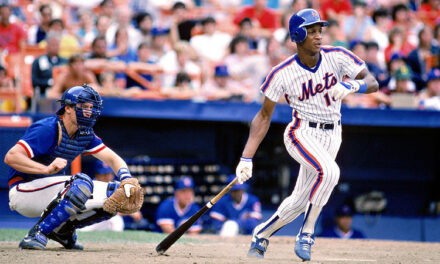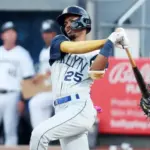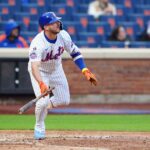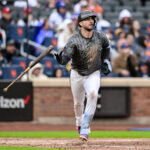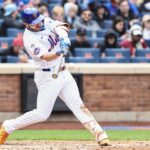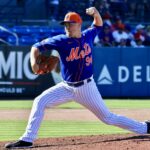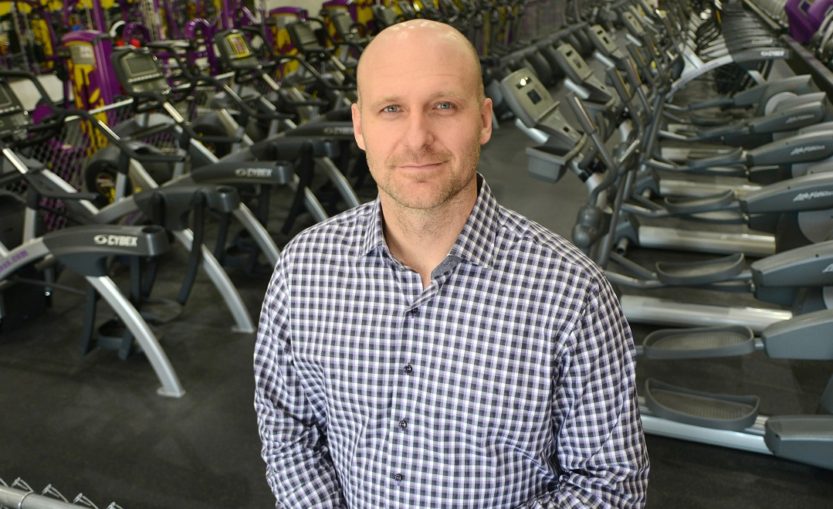
Corey Koskie has stories to tell.
The former nine-year major league third baseman for the Minnesota Twins, Toronto Blue Jays and Milwaukee Brewers has taken the advice and lessons he’s learned over the course of his career and is sharing his wisdom through the power of narrative.
Koskie, 45, established a website called Linklete, which features a collection of personal stories that he hopes will aid both parents and kids in youth sports. His ambition is admirable; intending for his personal experiences paired with guest writers – such as Brian Dozier – to help quell doubts and be used as a tool for support in times of adversity.
After coaching over 85 youth baseball and hockey teams since his retirement from the game in 2009, Koskie has found that the best way to get through to kids is through storytelling. He discovered that utilizing real-world examples from his own career kept the attention of his youth players, and connected with them better than simply telling them what to or what not to do.
The stories offer a reminder to all: failing is a part of life. Koskie aspires for these stories to lend hope and relief and serve as a reference to when times are tough.
He opines that when successful people share how they navigated through a difficult period or event, it can lead to looking at the situation in a new light, leading to reflection and possible change.
Koskie’s stories of adversity and perseverance encompass what was his own unique career. Starring in hockey and volleyball as a youth, Koskie didn’t start playing serious baseball until he was nearly 20-years-old.
After attending the University of Manitoba on a volleyball scholarship, Koskie transferred to Des Moines Area Community College on the persistence of their head coach, John Smith.
Koskie was selected in the 26th round of the 1994 MLB June Amateur Draft by the Minnesota Twins and made his big league debut four years later.
Among qualified rookies in 1999, Koskie was tied for fifth in wRC+ (116), fourth in on-base percentage (.387) and fifth in fWAR (2.7).
In 2001, Koskie had his breakout season for the Twins, appearing in 153 games and posting career highs in home runs (26), RBIs (103), stolen bases (27) and hits (155). He became the first American League third baseman to post at least 25 home runs, 25 stolen bases and 100 RBIs in a season.
From 1999 to 2004, Koskie never posted an OPS under .815 and was a force to be reckoned with on both sides of the ball. From 1999 to 2005, Koskie posted 10 defensive runs saved (DRS), 8th best among qualified third basemen. His 14.5 UZR/150 was third-best during that same span.
Playing in his ninth season in the majors in 2006 with the Brewers, little did Koskie know that it would be his final year in the bigs.
The Brewers were facing the Cincinnati Reds at home on July 5. A popup off the bat of Reds’ shortstop Felipe Lopez saw Koskie range back, dive, and land awkwardly on the ground. Koskie was diagnosed right away with a concussion and spent the next two-plus years working to mount a comeback to baseball.
He signed a minor-league deal with the Chicago Cubs in 2009, however, he retired in spring training after feeling ill after diving for a groundball. After going through what he called his “personal hell” the past two-plus years while dealing with headaches, nausea and dizziness, Koskie figured the risks weren’t worth the reward of coming back to play.
The fear of not being able to go all out on the field coupled with having a family at home and wanting to live a normal life vastly outweighed trying to make it back to the majors.
Knowing that he worked back from the concussion symptoms that plagued him, Koskie was at peace with the idea that he at least made it back to field – albeit briefly – in spring of ’09.
This is where Koskie’s new calling in life comes into play. He hopes to inspire others who have experienced their own hardship by sharing his personal accounts and reminding those reading that we all share in similar experiences.
Understanding that adversity doesn’t have to be dealt with alone is something that Koskie is adamant about. His goal is for Linklete to act as a safe space for both parents and youth to share and receive firsthand accounts of how to navigate through difficult situations.
I had the privilege of speaking with Koskie in early August, where we spoke about Linklete, his early years with the Twins, and his thoughts on concussions in baseball.
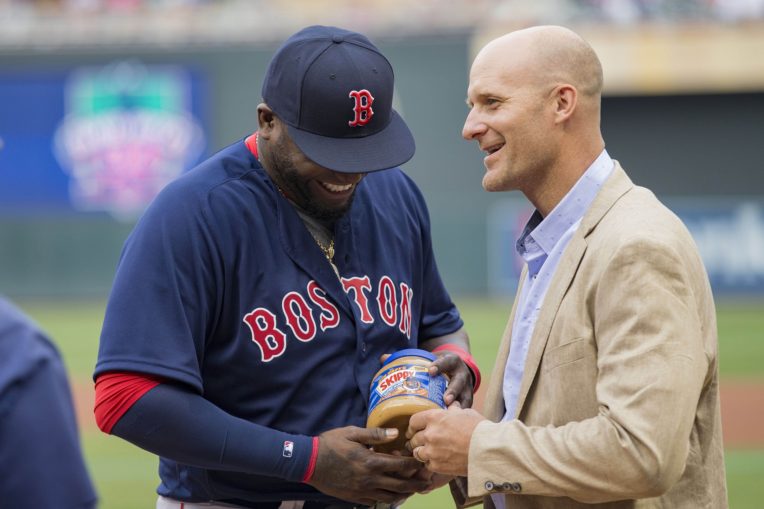
MMO: Thanks for some time today, Corey. Talk to me about how Linklete started and where the idea came from.
Koskie: This has been going on for about a year and a half. I started building this app to connect doctors and athletes, but it wasn’t feeling right. I wanted to make more of an impact and this just wasn’t feeling like I was able to make the impact that I wanted to make.
I started to go ahead towards making this other app; it evolved into this other type of app that I was going to do this and that with. I got pricing anywhere from $25,000 to $2 million dollars to build this app. It was going to take a while to grow, and I was still questioning whether it was going to make an impact.
I was talking to one of my buddies a couple of years ago and he said, “Corey, you should write a book.”
And I’m like, ‘Nobody cares about my book. I’m old news and no one’s going to read my book.’
He said, “No, you should write a book for your kids. Now you have kind of a family legacy thing.”
I thought it was interesting so that was planted in my head.
Since I’ve retired, I’ve coached over 85 teams. I have four boys and I coach baseball and hockey. I’m not the type of coach to say you need to do this and do that. I connect to the kids through stories. If there’s a message I want to tell them, I say, ‘Okay, here’s a story.’
I tell them the story of the big leagues and this player did this and I did that. I tell them what I learned from it and here’s how I try to apply it and here’s how I see this applying to this situation. When the whole world tells you that kids don’t have attention spans when I tell a story I have fourteen kids locked in for twelve to fifteen minutes. The story has such ability and power to connect.
So I thought, Why don’t I take these stories and start putting them out there? To start using my stories that I tell my teams to help other kids and parents that are going through similar stuff because we’re all different. But where we all connect is on emotion because we all get angry, we all get frustrated, we all feel. That’s where I try to gear these stories to, is trying to connect to the feeling of the story.
There are experts all over the world and everybody is telling you what you need to do and everyone is smarter than everyone else. That’s what’s going on a lot. I’m like, here’s my story, here’s what I learned from it, and here’s how I tried to apply it. Now you do whatever you want with this. I’m not telling you what you need to do, this is my story.
I see it all the time in church. The pastors talk and preach and all of a sudden someone comes up and talks about their testimonial. All of a sudden, you don’t hear a pin drop because people are transparent and they’re putting themselves out there.
Over the last five to seven years, it’s kind of been honed in, honed in, honed in. Now this is kind of my phase one component of it; telling the stories and connecting people through stories and getting athletes’ stories out there. Not even just athletes, successful people’s stories out there because everybody’s telling you that the reason so and so is successful is because they’re lucky. Or the reason so and so made all of this money is because he’s lucky. Well yeah, luck can have a piece of that but the dude worked his tail off to get that and make his luck.
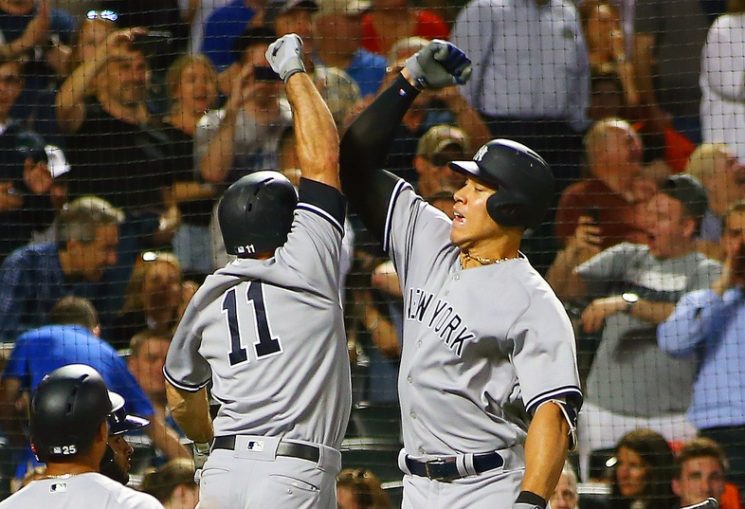
MMO: You mention that this is all phase one. What do you envision is next for the site?
Koskie: Right now I have my stories and Brian Dozier did a story on there. Everybody that I talked to is willing to give me a story to help the kids and other people. A majority of the athletes are humble guys and just genuinely good dudes. And yeah, you get a couple of yahoos there that can really spoil it, but there are just a lot of good dudes.
I’m going to get more stories and more people telling their stories. Right now, I’m kind of focusing in on Minnesota because I want them to relate to Minnesota. Then I’ll branch out and hopefully go to New York.
The Aaron Judge story is going to resonate more with Yankees fans than it will with a Minnesota Twins fan. And Aaron Judge has a certain background, I have a certain background, and his stories are going to resonate more with those backgrounds. I want to get more stories to be able to talk to different people from different backgrounds and different thoughts, beliefs, etc.
I should have an app here in the next couple of weeks that’s basically a story stream type of thing, but then I want to go from there. I have a whole plan in place to connect the communities and do a better job of reconnecting our communities.
MMO: How many articles can fans expect to see per month?
Koskie: I’m trying to do two per week. I’m going to do a podcast and then I’m going to have a writer listen to the podcast and write a story out of the podcast. The hope would be getting three [articles] out per week.
I just want the stories to have an impact and the kids to read the stories and say, “Hey, Corey Koskie dealt with this and he’s okay. He battled through it so I can battle through it.”
I’m trying to cut through the lies that I would say are going on in the world right now. Lie number one is: you can do this yourself. You’re a self-made millionaire, independent this or that, you can do everything by yourself. That’s a lie. You need help and a support staff around you. When you’re going through stuff you feel really lonely and there’s peace in knowing other people have gone through similar stuff. That’s the other lie that goes back to you can do it all yourself. When we go through stuff we try to bring it on and put it all on ourselves, and we don’t talk about it. We can get swallowed by that.
The stories are hopefully a safe place where people could read about others going through some adversity who are really successful people and say, “Look, these guys were able to break through that and they got there, I can do this.”
MMO: You played hockey and volleyball growing up in Canada and you went to the University of Manitoba on a volleyball scholarship. Where did the love of baseball fit in?
Koskie: I was always a Blue Jays fan because where I grew up, we had three television stations and the Blue Jays were always on one. I’d watch the Jays and the Expos would be on a different station, so I’d watch baseball and I enjoyed watching baseball.
I would watch the day games during the summer so I could hide from dad so I wouldn’t have to go work on the farm. [Laughs.] It gave me an excuse to go inside from the heat and from working outside all day.
I enjoyed baseball and I just played a little bit, I didn’t really start playing serious baseball until I was around 19-years-old. What we had would be more like a recreation baseball; we played 20-30 games and we had such a short baseball season, it was just filler.
Hockey was my first love, volleyball was what I was best at and baseball was just something I did to fill the gaps.
MMO: And then you transferred to the States to play baseball at Des Moines Area Community College?
Koskie: Yes. I’m not sure if you read one of the stories on my website, the one where I talk about that process of this guy (John Smith, head baseball coach) calling me every day and I went. I played volleyball almost every day for those last six years of my life and I thought I may be getting burnt out of it. I haven’t played that much baseball at all, so I wanted to go see what it was like.
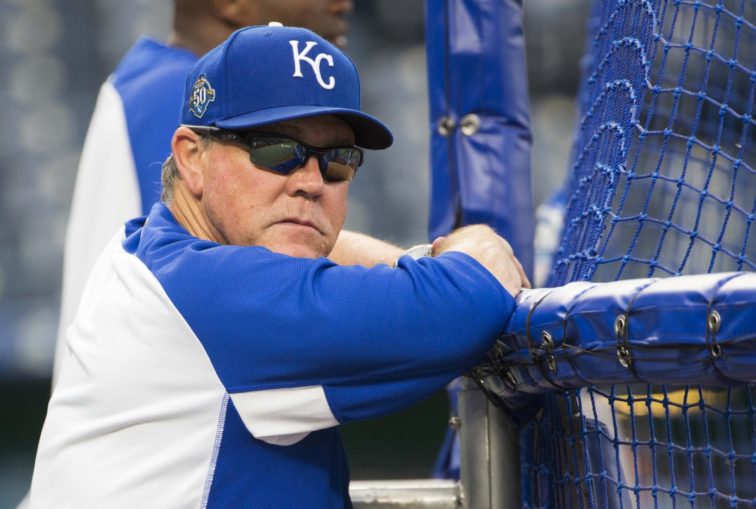
MMO: In a previous interview you gave, I heard you talking about how you played and came up with many of the Twins’ regulars in the minor leagues. Do you believe that getting that chemistry early on leads to better cohesion and can give a team an advantage?
Koskie: Well, if you win. [Laughs.] If you win then everything’s great. When I got traded over to the Brewers they had Rickie Weeks and Prince Fielder. I remember I was sitting in the office with Ned Yost, and we were talking and I’m like, ‘Dude, you have one chance to train these guys.’
You get them the first couple of years and they’re all wide-eyed and they’re open. But once they start getting paid and they start getting some time, you’re going to get to a point where you go from wide-eyed to the point where you think you know everything. That’s going to last for four to five years and then at your seventh, eighth, ninth year – somewhere around there – you start to realize how little you do know.
It’s like when you get to the big leagues you’re that child – zero to four – in the first couple of years you’re just wide-eyed and you’re trying to absorb everything you can and you’re learning. You’re a sponge. Then kind of in the mid-part of your career is when you’re in your teenage years, where you’re smarter than everyone else and you’re making all of this money and you’ve done pretty well so you think that you’re pretty good. Then at the tail end of your career, when you’re getting older and you’ve got nine to fourteen years in, then you start to realize, huh, maybe I don’t do as much and then you start to get some wisdom. [Laughs.]
When you get these young guys up you’ve got one chance and you have got to train them right that first time. If you don’t, you can’t go back and re-train that.
MMO: You were a player that seemed to excel at all aspects of the game: from base-running, hitting for power, getting on-base and fielding your position. Was being a well-rounded player something you took pride in?
Koskie: I’m biased to all of that stuff because that’s how I was taught. You have to remember that I came from a knowledge base of basically zero, and everything I learned was basically through the minors with the Twins. And it was reinforced over and over and over again.
We had sticklers, a guy by the name of Larry Corrigan was the field coordinator when I was there, and what he expected is guys to play baseball. He held managers accountable and always had to run it out and play the right way. Then T.K. (Tom Kelly) would reinforce getting that extra base, going first to third. That’s just the way I was brought up and raised.
At the end of the day, it’s about crossing home plate and how do you get more guys to cross home plate. It’s hitting and base-running and if you’re not hitting, get on base somehow.
With the shift defense out right now, there are so many base hit opportunities there. Those are guaranteed hits. When you’re 0-for-12, I would take three bunt base hits to get me locked in because if I’m 0-for-12, I know I’m 0-for-12 and I’m just not feeling it. I need to try and figure out a way to keep my head above water. If I can find a way to minimize that 0-for-12 and be 3 or 4-for-12 with bunt base hits, and then when I start hitting and getting that feeling [back] it’s like okay, now I’m locked back in. Now I can hit out of there.
I would eat these shifts. I don’t understand why they’re not taking more advantage of that because those are just given base hits. Go get that. Then when you’re able to bop and you’ve got your swing locked in, then go get yourself some.
MMO: Do you think it’s pride or ego factor with these extreme pull left-handed hitters not laying down more bunts to get on-base and beat the shift?
Koskie: I have no idea, you’d have to ask those guys. The best year I had in the big leagues – when I became the first American League third baseman to have 25 home runs, 25 stolen bases and 100 RBIs – that’s the year I had the most bunt base hits. I remember bunting a lot that year because I had those bags, too. Get on base and then steal second. There were just so many ways for me to help a team and I had no problem [bunting].
I’d lay a bunt down, especially when I wasn’t feeling well and my swing felt off somewhat, or I had trouble seeing the pitcher. Did I cost myself more home runs? I don’t know. But 26 home runs or whatever I had was still pretty good.
MMO: You brought up your 2001 season, a career year for you. You posted career highs in hits (155), homers (26), RBIs (103), stolen bases (27) and bWAR (6.3). Was there anything you changed mechanically or that you can point to for that breakout season?
Koskie: I have no idea. The first two years I hit .300 and T.K. put me in the cleanup hole that year. It was kind of a shock to me. So I don’t know if him all of a sudden showing that confidence in me gave me the confidence to do what I did. But I have no idea why it clicked or what happened that year. It just did.
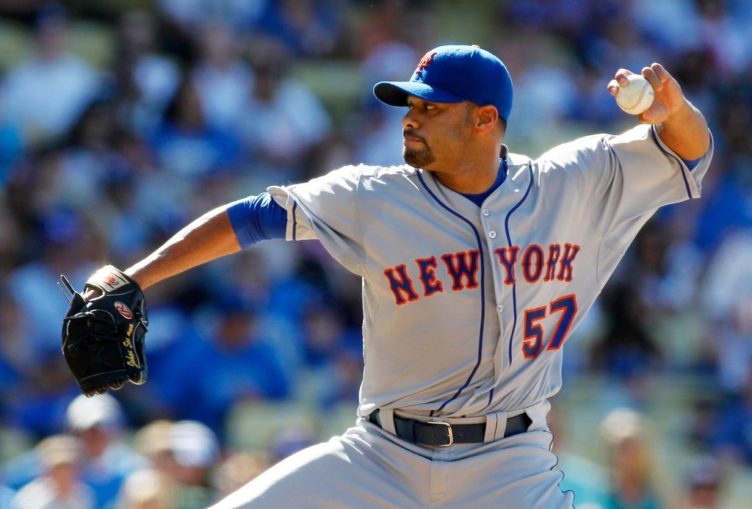
MMO: A name Met fans are very familiar with is a guy that you saw early on in his career: Johan Santana. You watched him transform from a reliever/spot starter to a Cy Young Award winner. Did you have any sense early on that he was going to be as special as he eventually became?
Koskie: Yeah, yeah. I always said my three favorite guys to play behind were Roy Halladay, Brad Radke and Johan Santana. Brad and Johan were probably my favorites because I played behind them for so long.
With Brad and Johan, if you make an error they were like, “Hey, no problem. We’ll get you another ball. You’re all right, you’re all right. Let’s go.” The pitchers had your back and they worked fast and they threw strikes. Yeah, they’d get frustrated if you missed a ball but they’d never show it. The way they presented it was that they were confident in your ability.
On game days, Johan would be laughing and joking around whereas other guys like [Eric] Milton would have a whole routine where you couldn’t talk to him. With Johan, you never knew if he was starting or not starting. [Laughs.] And his changeup was just absolutely nasty.
MMO: On July 5, 2006, when you were with the Milwaukee Brewers, you fell backward and suffered a concussion while trying to catch a popup off the bat of Reds’ shortstop Felipe Lopez. That would end up being your final major league game as you battled concussion symptoms for the next two-plus years. Can you talk a bit about what you went through?
Koskie: That’s going to be one of my podcasts because there’s a whole story behind that. It was two and a half years of just dealing with this hell. It sucked. Everything I could do I couldn’t do anymore and you didn’t know if you were okay. Everyone would say you look okay, but you don’t feel okay. It was a little personal hell and I wouldn’t wish that on my worst enemy.
MMO: You were a non-roster invitee with the Chicago Cubs in ’09 before eventually deciding to retire. Was there any peace of mind knowing you were able to at least get back on the field and attempt to play again?
Koskie: The main reason I wanted to get back and play was because it meant my life was normal and I was able to do what I did [again]. When I was able to get back to play it was like, Okay, I’m okay. Now I can walk away.
When you’re in it, you’re in it and you don’t know anything different. When you’re away from it and then you go back in it, it’s like, this sucks. The travel and as much as you’re away from your family and you’re just dealing with the guys, how much time you spend at the ballpark. When you’re in it and that’s all you know, that’s all you know.
I would get to the ballpark during spring training at six o’clock in the morning and I’m not back home until 2:30-3:00 and you’re dead tired. And then you get to the course of the season and games are at seven and I’ll roll out of the house at 12:00. With all of the travel, I was like, I’m good, I don’t need to do this anymore.
MMO: Do you still experience any symptoms from your concussion?
Koskie: No, no. I dove for a ball (in spring training with the Cubs) and I felt a little funny but I was fine right away. I didn’t really know what I wanted but I knew that I didn’t want what I just had for the last two and a half years and I didn’t want to put myself in that position [again]. So I was done.
MMO: In 2011, Major League Baseball and the Major League Baseball Players Association announced new protocols related to concussion management for both players and umpires. What were your thoughts on the steps MLB is trying to take in dealing with and treating concussions?
Koskie: It’s great, they needed to do stuff like that. The protocols that the Brewers went through was they called the Green Bay Packers’ guys. The Green Bay Packers’ guys said if we let guys play with the concussions that your players have, we wouldn’t field a guy on Sunday. We wouldn’t field a team on Sunday. That’s what the Brewers’ doctor told me.
MMO: Is there anything you would want Major League Baseball to do moving forward when it comes to dealing with concussions?
Koskie: I don’t know because it’s just a slippery slope. If you look at the symptoms of concussion-like anxiety disorders there’s so much stuff that goes on from a mental standpoint that can have the same symptoms of a concussion. What is a concussion and what’s not a concussion? I don’t know the answer. But everybody can criticize the steps in place and I don’t know where’s going too far vs. not too far. What’s being hyper-sensitive to not sensitive enough. That line’s moving and that’s a moving target.
I deal with coaching kids and I’ve got kids who get dinged and banged their head and they pull the kid because they have a concussion. But we don’t know if the kid has a concussion. Yes, his head’s going to be sore because he banged it; just like if I get hit in the leg I’m going to have a sore leg. Is it on the surface or are you actually concussed? How do you know if it’s an actual concussion or just a surface injury or neck spasms? It’s so hard to figure that one out.
MMO: When you look back on your career what are you most proud of?
Koskie: What I’m most proud of is how we went from a contraction team [to a contending one]. I was the only guy living in Minnesota at the time, and going to all these town hall meetings about contraction because we were going to get contracted. And then going on from there and making the run that we did and what was it 2001 we had that phenomenal year. We ended up losing it, we were up by 12 games going into the All-Star break but the Indians came back and beat us.
We were a “quadruple-A” team, that’s what one of the announcers said. We were better than a Triple-A team but we weren’t a major league team. So, going from a “quadruple-A” team to a contender and being a part of that turnaround and getting to the playoffs (in 2002) and going in the ALDS and winning a round and beating the A’s – who were the darlings of the whole league – because that’s the year they had 20 wins in a row.
Being a part of a winning group with an organization that went from the bottom of the barrel to contending for three or four years [is what I’m most proud of].
MMO: I really appreciate your time today, Corey. Best of luck with the website.
Koskie: Awesome. I appreciate it.
Follow Corey Koskie on Twitter, @ckone47
Check out Linklete here.





